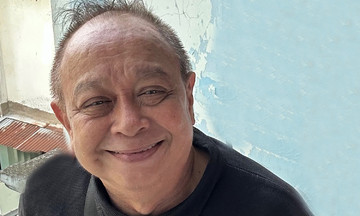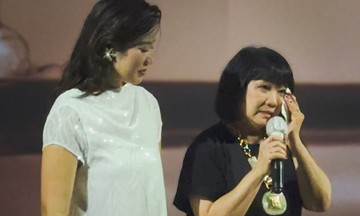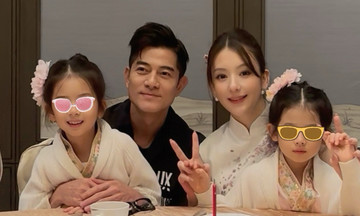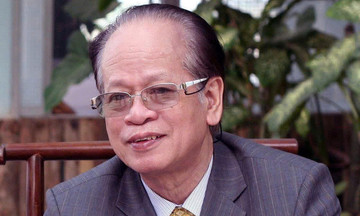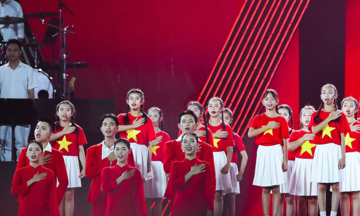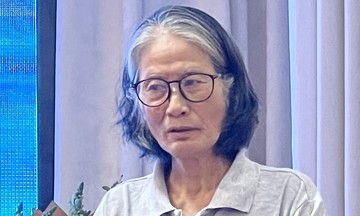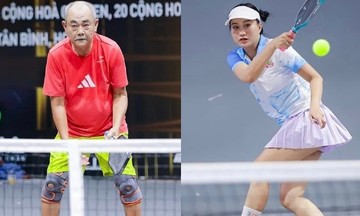Compiled by poet Nguyen Thuy Kha, the book, republished to commemorate the 80th anniversary of National Day (2/9), has become a sought-after read following the success of the film "Red Rain."
The book is divided into two parts. The first, "Leaving the Lecture Hall," is the diary of Dao Chi Thanh, a soldier of the North Vietnamese army. The second, "Quang Tri Within Me," is the memoir of Nguyen Thanh Quang, a marine in the South Vietnamese army.
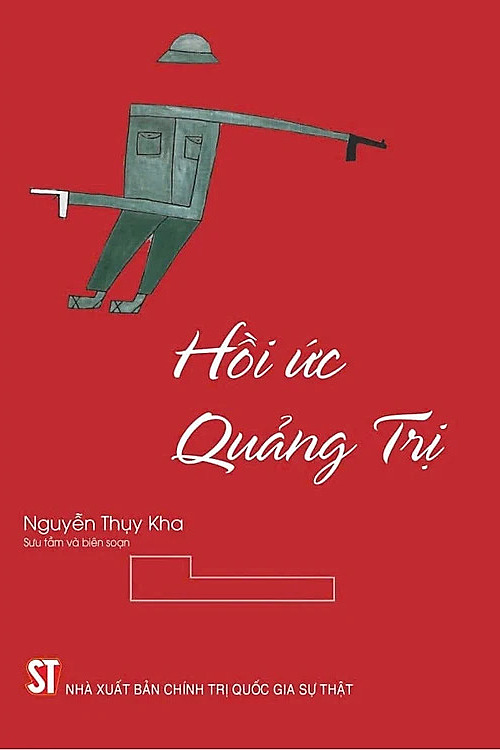 |
Cover of "War Memories of Quang Tri," published by Omega+ and the National Political Publishing House: Photo: Omega+ |
Dao Chi Thanh enlisted in 1971 while a mathematics student at Hanoi Pedagogical University. His diary begins on 26/8/1971, chronicling his training and preparation for combat. He constantly yearned for home, dreaming of peace and returning to his family. "I always imagine my siblings," he wrote. "My beloved siblings whom I miss terribly. I long to see them, even for a moment. A soldier's heart always aches for home." Celebrating his first Lunar New Year in the army, despite longing for his family, he remained steadfast in his ideal: "Ready to sacrifice everything so that future students won't have to lay down their pens and go to war."
In his free time, Thanh continued his studies, learning Russian. The soldier set aside his dream of scientific research. "My youth is being spent fighting at the front. I am dedicating my life to the struggle for national independence and reunification. But the desire to learn and the dream of science always remain within me."
During intense initial combat, with "continuous artillery fire and relentless bombing. Smoke and dust filled the bunker," Thanh fired 70 rounds alone. He later recalled, "Some days, two thousand artillery shells rained down. From 1/8 to 3/8, fifty thousand shells, ranging from 105mm to 270mm, pounded the town. Rubble and shrapnel flew everywhere. The constant explosions were nerve-wracking." Amidst the harsh conditions, with limited rations, the soldiers subsisted on rice, thin soup, and water. Within a month, five men in his company had died. Quang Tri town became a focal point for bombardment, unprecedented in the history of warfare.
After many days and nights, the battle to defend the Citadel ended. On 16/9/1972, Thanh crossed the river, bidding farewell: "Goodbye, Citadel! We are leaving! Until we meet again."
Even while on leave, Thanh's thoughts remained with his comrades: "My comrades continue to fight bravely, blood continues to spill, sacrifices continue. After this leave, we will return to our unit and continue fighting until victory."
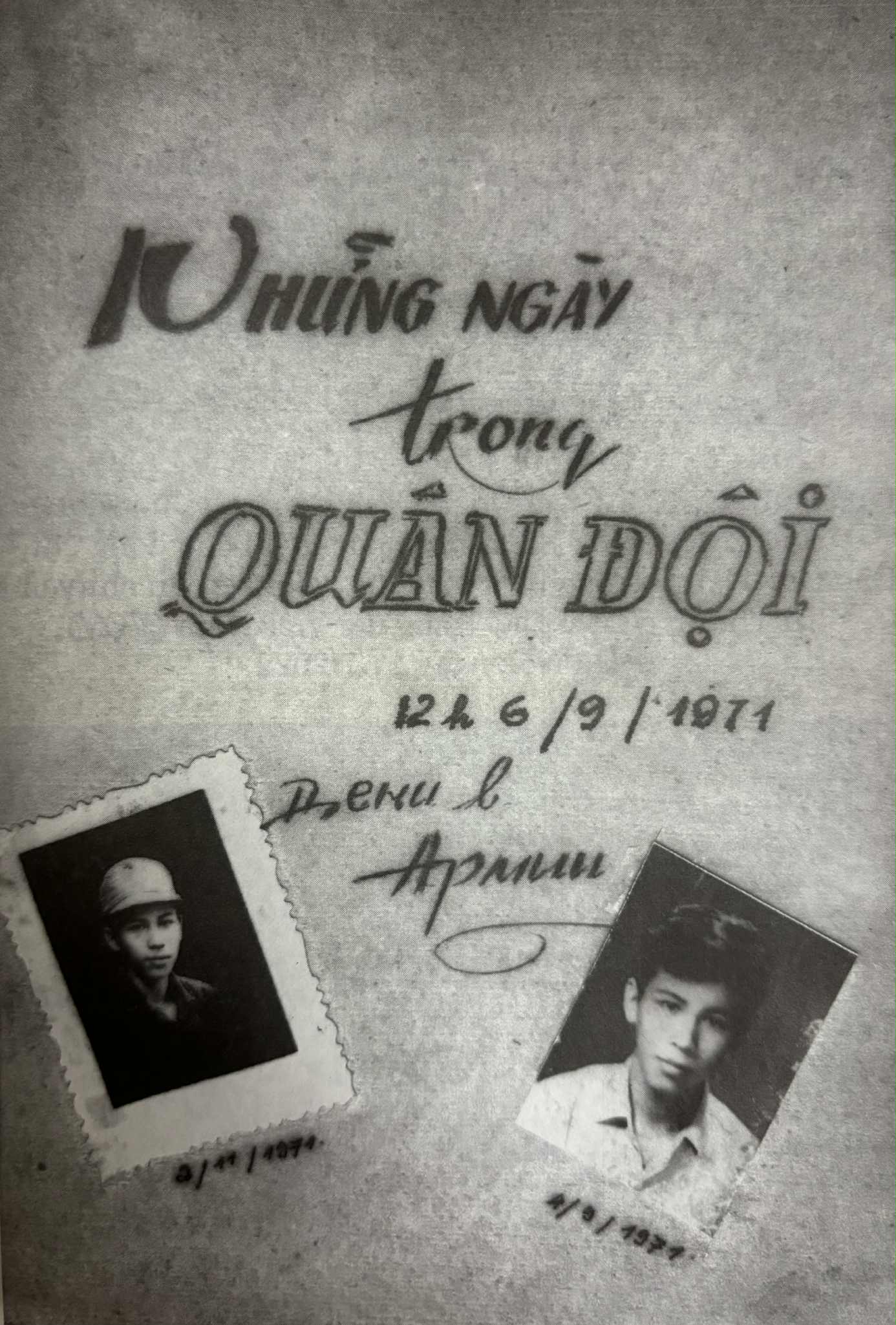 |
Cover of Dao Chi Thanh's diary. Photo: "War Memories of Quang Tri" |
On the other side of the battle lines was Nguyen Thanh Quang (born Phan Van Lan), a courageous marine, knowledgeable about warfare, but burdened with inner turmoil. Born in 1953 (the same year as Thanh) in Binh Thuan, Quang joined the South Vietnamese army in 1970. At the Quang Tri Citadel in 1972, he served as a scout team leader.
In his memoir, Quang describes becoming accustomed to death after numerous battles, "knowing only killing." He "ate and slept with grief." Surrounded by corpses, he "felt nothing." The reality was brutal: ruined buildings, overgrown courtyards, a desolate landscape reflecting the destructive power of war.
Quang "felt forced to fight," his youth and aspirations consumed by the conflict. He believed war turned people without animosity into enemies. Strangers, without personal grievances, were forced to kill each other because of the "laws of war": "If I don't shoot you, you will shoot me."
The book highlights the contrasting motivations and ideals of the two soldiers, yet they shared a common desire for life and peace. Quang lamented, "So many young men, barely eighteen or twenty, lay here forever. The summer of 1972 in Quang Tri was a zone of bombs and bullets, a furnace of death. The summer of the highway of horrors, of the Citadel crumbling in a sea of fire. Vietnamese blood, North and South, soaked the land of Quang Tri."
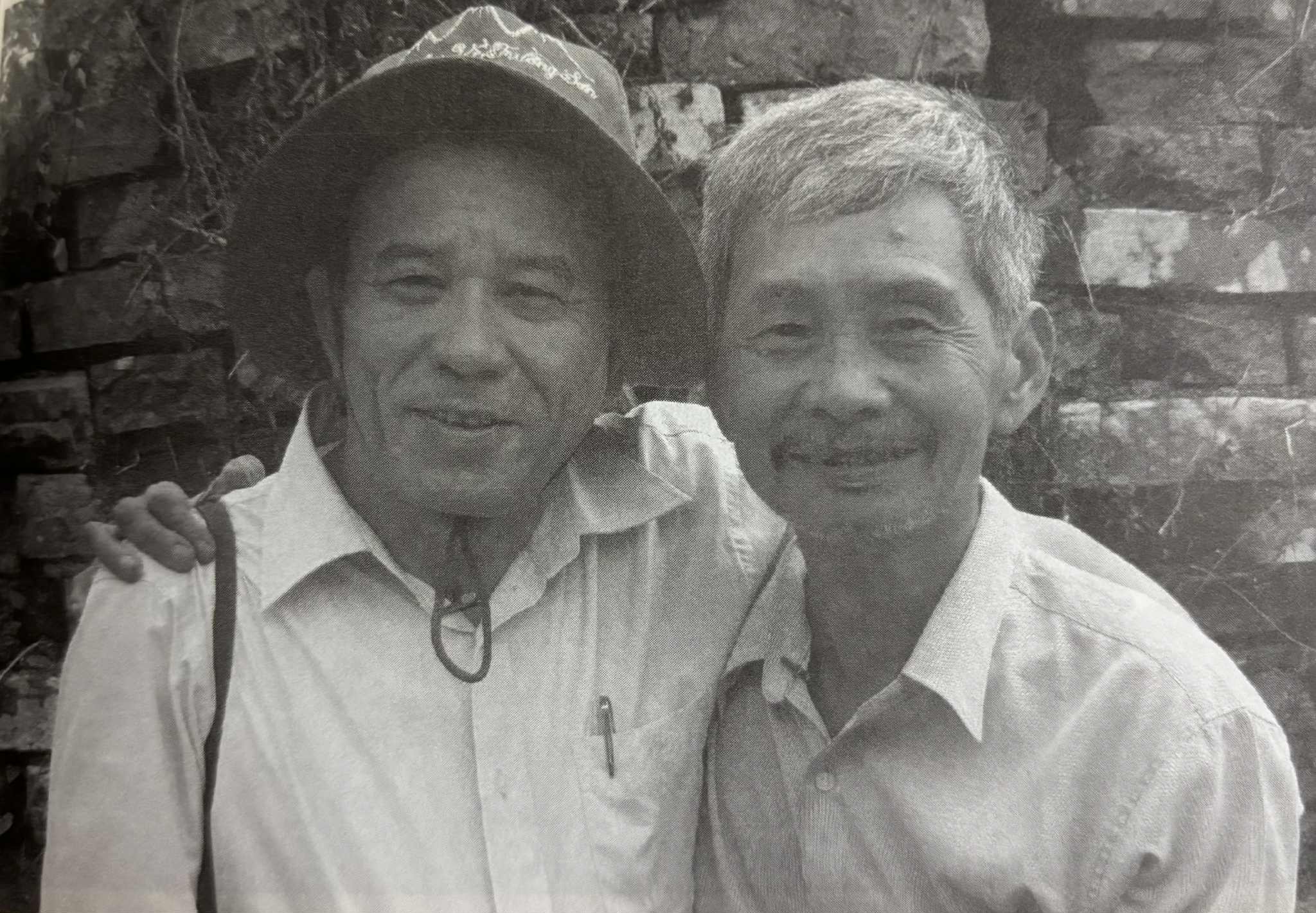 |
Dao Chi Thanh (left) and Nguyen Thanh Quang at the Quang Tri Citadel in 2014. Photo: "War Memories of Quang Tri" |
After reunification, Quang surrendered and underwent re-education. Facing hardship and despair, he sought solace. He contacted the South Vietnamese Veterans Association in the US, hoping to reconnect with former comrades and share his experiences. He also petitioned the US Consulate General in Ho Chi Minh City to participate in the Humanitarian Resettlement Program, but received no response.
Over time, Quang reflected on the war. At home, he "lived in poverty but was known as a living witness to a time of war." Through interactions, he met North Vietnamese veterans from the 1972 battle, including Dao Chi Thanh, then a doctor of science and director of the Institute of Electronic Technology. They "achieved national reconciliation through their friendship, forgetting the past, looking towards the future."
Quang then wrote his memoir, wanting "to write truthfully so that future generations can accurately reflect on our time." He entrusted the manuscript to Thanh, giving him "full discretion." Combined with Thanh's diary, "Leaving the Lecture Hall," the book symbolizes the spirit of overcoming the past to embrace compassion.
Nguyen Thuy Kha explained his purpose in placing the accounts of two soldiers from opposing sides within the same book: "I hope that with a publication portraying the thoughts and feelings of two soldiers from opposing sides, the spirit of national reconciliation will deepen and broaden."
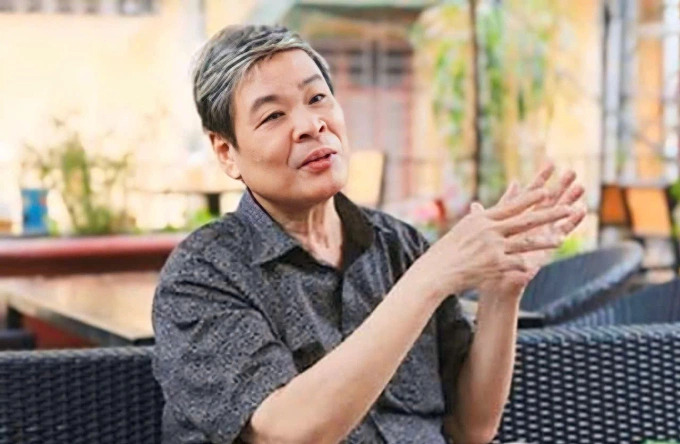 |
Poet Nguyen Thuy Kha. Photo: Vietnam Writers' Association |
Nguyen Thuy Kha (1949-2025) was a poet, writer, musician, journalist, and music researcher. He graduated from the University of Information and the Nguyen Du Writing School and served in the army from 1972 to 1990 as a communications engineer. He was a member of the Vietnam Writers' Association from 1990. Some of his works include "The Scent of Sunshine and Birdsong" (poetry, co-authored, 1982), "The Eyes of Time" (poetry, 1988), "At That Time - The Sea" (poetry, 1989), "Van Cao - The Man Who Walked Along the Sea" (short stories, 1992), "Han Mac Tu - The Virgin Poet" (short stories, 1993), "Once Upon a Young Poem" (short stories, 1994). In 2022, he wrote "The Scent of Love and Humanity on the Quang Tri Battlefield." He was the author of the documentary film "Nguyen Binh Khiem - A Great Tree Shading 500 Years," released in 1991.
Chau Anh




